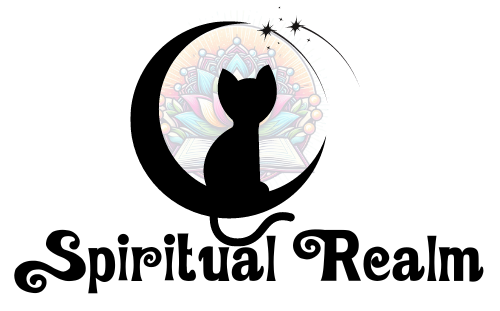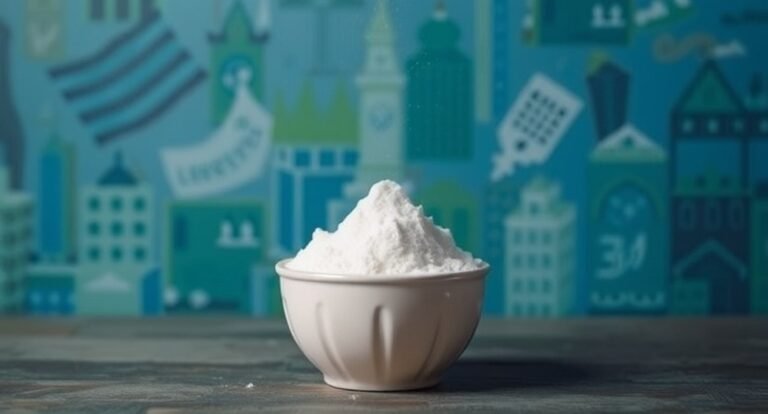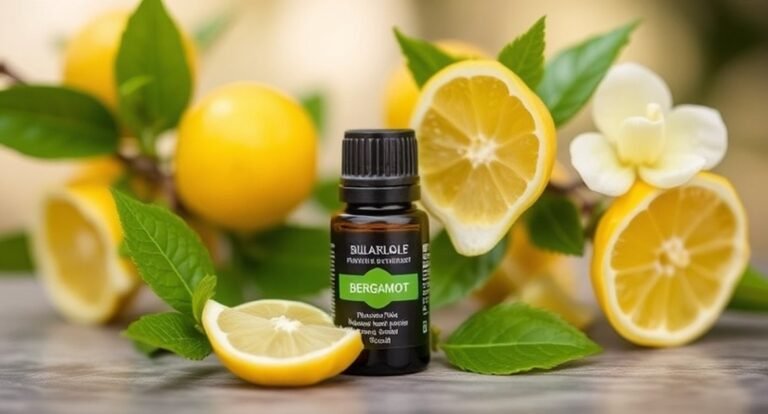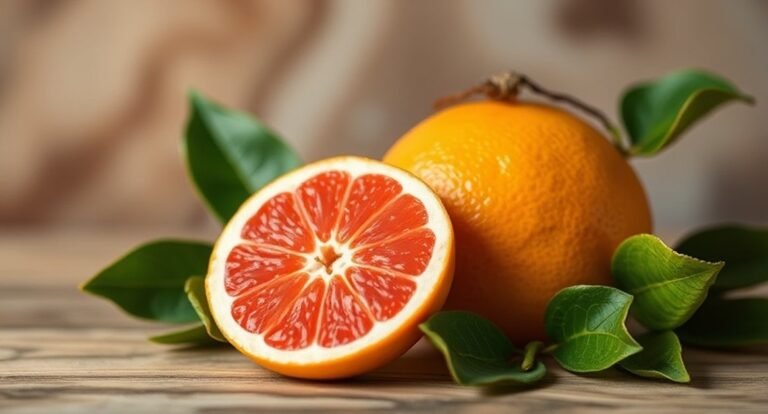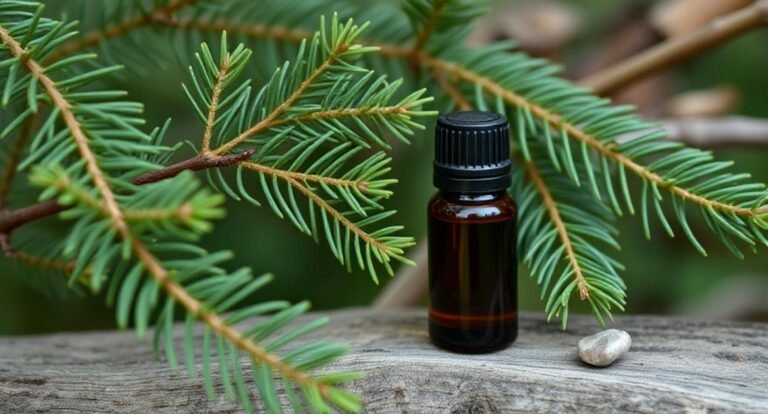Hibiscus Spiritual Benefits: Unlock Vibrancy, Healing, and Joy
Imagine stepping into a world where nature’s beauty meets profound spirituality. Hibiscus, with its vibrant petals and rich history, has captivated hearts for centuries. But did you know that this stunning flower also holds deep spiritual significance?
The hibiscus is known to enhance intuition, promote love, and attract positive energy. Its calming essence encourages mindfulness and self-reflection, making it a powerful ally in your spiritual journey.
Curious about how this enchanting flower can elevate your daily life? From rituals to personal growth, the benefits of hibiscus are waiting to be explored further. Let’s dive deeper into what makes hibiscus so special.
Spiritual Significance of Hibiscus in Various Cultures
The hibiscus flower holds a rich tapestry of spiritual significance across various cultures. Its vibrant colors and beauty have made it a symbol of love, creativity, and peace. In many traditions, hibiscus is seen as more than just a plant; it embodies emotional healing and connection to higher realms.
In Hindu culture, the hibiscus is dedicated to Goddess Kali, representing strength and femininity. Offering this flower during prayers is believed to invoke divine blessings and protection. Similarly, in Hawaiian culture, the hibiscus symbolizes hospitality and warmth. A woman wearing a hibiscus behind her ear signifies her relationship status—either single or taken—which adds layers of meaning to its use.
The hibiscus’s ability to thrive in diverse environments reflects resilience—a trait highly valued in many spiritual practices.
Hibiscus in African Traditions
African cultures also revere the hibiscus flower for its medicinal properties and spiritual meanings. For instance, the sorrel drink, made from dried hibiscus petals, is often used during celebrations. It represents joy and community bonding.
Moreover, some tribes believe that planting hibiscuses around homes brings positive energy while warding off negativity. The bright blossoms are thought to attract good spirits.
Symbolism in Native American Culture
Among Native Americans, the hibiscus serves as an important cultural symbol linked with unity and togetherness. Some tribes use it during ceremonies aimed at enhancing social bonds within communities.
The flower’s stunning appearance also inspires artistic expression through traditional crafts like weaving or beadwork that incorporate its likeness.[source]
A Symbol of Love Across Continents
- Asia: In Asian cultures such as Chinese traditions, the hibiscus represents transient beauty—an acknowledgment that life’s moments are fleeting yet precious.
- Tropical Regions: In tropical regions worldwide including Polynesia & Fiji islands where diversity flourishes; it’s commonly associated with romance and affection.
- The Americas: Here too! The flower signifies deep-rooted love among couples celebrating their unbreakable bond through weddings or anniversaries.
The widespread appreciation for hibiscuses highlights humanity’s shared values surrounding love, connection, resilience—and ultimately spirituality.
Enhancing Meditation Practices with Hibiscus Flowers
Hibiscus flowers can significantly enhance your meditation practices. Their vibrant colors and soothing essence create an ideal atmosphere for mindfulness and reflection. By incorporating hibiscus into your routine, you invite a deeper connection to your spiritual self.
The calming properties of hibiscus are backed by various studies. Research indicates that certain floral essences can promote relaxation and reduce stress levels (National Institutes of Health). This aligns perfectly with the goals of meditation, which seeks inner peace and clarity.
Creating Your Hibiscus Meditation Space
To start enhancing your practice, consider creating a dedicated space adorned with hibiscus flowers. Here are some ideas:
- Add fresh or dried hibiscus blooms: Place them in vases around your meditation area.
- Use hibiscus tea: Sipping this herbal infusion before meditating can help calm the mind.
- Incorporate aromatherapy: Essential oils derived from hibiscus can enrich the sensory experience during meditation sessions.
Meditation Techniques Featuring Hibiscus
You might also explore specific techniques that integrate the essence of hibiscus:
- Visualization: Imagine yourself surrounded by a field of blooming hibiscuses as you meditate. Envision their vibrant energy enveloping you, promoting love and positivity.
- Breathe deeply: While inhaling, visualize drawing in the calming essence of the flower; while exhaling, release any tension or negativity.
- Create affirmations: Use phrases inspired by the attributes of hibiscus—such as “I embrace my intuition” or “I attract positive energies”—to focus during mindful moments.
The rich symbolism associated with hibiscus is often linked to beauty, love, and passion. Incorporating these themes into daily reflections enhances emotional well-being while meditating.
This enchanting flower not only beautifies but also serves as a powerful tool for personal growth during meditation practices. Integrating it thoughtfully fosters an environment conducive to spiritual exploration and mindfulness. Let each session be enriched by its presence as you deepen your journey towards inner tranquility.
Healing Properties of Hibiscus for Emotional Well-being
The hibiscus flower is not just a feast for the eyes; it also offers significant healing properties that can enhance emotional well-being. Rich in antioxidants and vitamins, hibiscus has been traditionally used to support mental health. Its calming effects have been embraced by various cultures for centuries, making it a valuable ally in managing stress and anxiety.
Research indicates that hibiscus may help reduce symptoms of depression and promote overall emotional balance. The presence of flavonoids contributes to its mood-enhancing qualities, helping to uplift spirits naturally.
Nutritional Benefits
Hibiscus tea is one popular way to enjoy the benefits of this remarkable flower. It contains:
- Vitamin C: Boosts immunity and supports mental clarity.
- Amino Acids: Essential for neurotransmitter function, which regulates mood.
- Antioxidants: Combat oxidative stress linked to mood disorders.
Cultural Significance
The spiritual significance of hibiscus extends beyond its beauty. In many cultures, it’s associated with love and compassion. For instance, in Hawaiian traditions, it symbolizes delicacy and beauty; thus people often wear it as a reminder of positive energy in relationships.
“The use of hibiscus transcends mere aesthetics; it represents a connection between nature’s bounty and our emotional health.” – Herbal Studies Journal
Aromatherapy Effects
The scent of hibiscus can also play an essential role in promoting relaxation. Aromatherapy enthusiasts utilize its fragrance through essential oils or dried petals to create calming environments conducive to meditation or self-reflection.
Meditation Practices with Hibiscus
Addition of hibiscus during meditation rituals can amplify your focus on inner peace. Simple practices include:
- Sipping warm hibiscus tea before meditating enhances calmness.
- Laying fresh petals around you creates an inviting atmosphere for mindfulness exercises.
The multifaceted aspects of the hibiscus flower reveal how deeply intertwined nature’s gifts are with our emotional landscapes. Incorporating this beautiful flower into daily routines fosters not only personal growth but profound connections with oneself and others.
Rituals and Ceremonies Featuring Hibiscus Benefits
The hibiscus flower plays a significant role in various rituals and ceremonies across cultures, celebrated for its beauty and spiritual attributes. Its vibrant colors symbolize passion, love, and positivity. Incorporating hibiscus into your rituals can enhance intuition, foster emotional well-being, and invite transformative energy.
Many traditions utilize the hibiscus in sacred practices to invoke deeper connections with nature’s essence. For instance, offering hibiscus during rituals is believed to uplift spirits while promoting inner peace.
Hibiscus in Spiritual Practices
In many spiritual communities, the use of hibiscus is prominent during meditation sessions. The calming scent of this flower aids focus and mindfulness. Participants often create hibiscus-infused teas, allowing them to connect with their inner selves on a profound level.
The soothing properties of hibiscus are recognized in traditional medicine for reducing stress and anxiety.
Cultural Significance of Hibiscus Rituals
Cultures worldwide embrace the symbolic power of hibiscus flowers. In Hawaiian tradition, they are often worn behind the ear as a signifier of one’s relationship status: left side for taken, right side for available.
- Caribbean Festivals: Many Caribbean festivals include offerings made from hibiscus petals to honor deities.
- African Ceremonies: In African cultures, dried hibiscus flowers are used in ceremonies that celebrate life transitions such as births or marriages.
- Buddhist Practices: Some Buddhists incorporate fresh blooms during prayer ceremonies to express gratitude towards nature’s gifts.
Meditation Rituals with Hibiscus
Create a serene atmosphere by incorporating dried or fresh hibiscus into your meditation space. You may choose to light a candle infused with its essence or place petals around you as you meditate. This practice not only enhances your surroundings but also invites positive vibrations into your energy field.
Using floral elements like hibiscus can significantly heighten the experience during meditative practices.
Cleansing Rituals Using Hibiscus Water
An effective way to incorporate this flower is through cleansing rituals using hibiscus water. To prepare it:
- Add fresh or dried hibiscuses to boiling water.
- Simmer until the color deepens; strain before use.
- This infusion can be used for both drinking or ritual purification baths.
This ritual serves not only as a physical cleanse but also offers an energetic refreshment that promotes clarity and openness in one’s aura.
The benefits of integrating these beautiful flowers into daily spiritual routines extend far beyond aesthetics; they enhance personal growth journeys profoundly!
FAQs
How can hibiscus enhance emotional healing?
Hibiscus promotes emotional healing through its rich antioxidant content, which supports mental clarity and alleviates stress. Incorporating it into your routine fosters a balanced emotional state and enhances overall well-being.
What role does hibiscus play in spiritual rituals?
In spiritual rituals, hibiscus symbolizes love and positivity. Its vibrant presence encourages mindfulness, making it an essential element for enhancing ceremonies that aim to connect individuals with nature’s energies.
Can hibiscus improve meditation experiences?
Yes! The calming scent of hibiscus creates a serene atmosphere during meditation. Its infusion in teas or as fresh petals enhances focus, promoting deeper connections to one’s inner self and tranquility.
